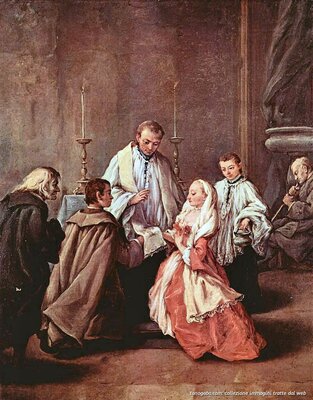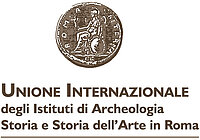Programme Processetti
« Processetti ». Marriage and mobility in Venice (late 16th to 17th century)
ANR Project 2019-2022
- Section : Modern and contemporary periods
- Project leader : Jean-François Chauvard (Lumière Lyon 2 University - LARHRA)
- Réseau des EFE : in collaboration with the École française d’Athènes
Presentation
This historical research programme focuses on the interactions between an institution and a practice: on the one hand, marriage, the sacrament of the Church and an essential step in professional establishment and social inclusion; on the other, mobility, taken in its double spatial and social meaning. For the field investigation, modern Venice is used, which was both a very large city of over 150,000 inhabitants at the end of the 16th century and a world city with a mixed population from all around the Mediterranean and transalpine countries. As such, it constitutes a privileged observatory for studying interfaith marriages (between Catholics and Orthodox), between foreigners and between natives and immigrants.
This project is based on massive documentation: the processetti matrimoniali. These surveys were conducted by the Catholic Church to ensure that the future spouses were indeed single or widowed. They focused first on those for whom there was doubt about their marital status, in particular the non-natives of the city. They were based on the examination of witnesses recorded in 340 registers between 1592 and 1807. This serial and diachronic documentation will give rise to a collaborative database produced from the project hosting platform (symoghi.com) hosted by the department of digital history of LARHRA and will be fed with a third of the material (120 registers, or about 10,000 investigations).
This original documentation will be subject to a double study. It will be studied, first, as the central element of the system put in place by the Catholic Church to try to reconcile mobility with respect for matrimonial rules. The analysis of the procedure will be extended to the Italian peninsula and to the Greek world under Venetian domination in order to better understand the circulation of ecclesiastical norms and practices.
Next will be an investigation of marriage as a pivotal moment in a migratory journey and a process of social inclusion. The processetti lend themselves to both a quantitative and a qualitative approach which makes it possible to reconstruct a whole range of migratory routes, for example female ones (which leave little trace in the usual sources used). Finally, we will examine how, at the end of a migratory journey, marriage could be an instrument of social integration by questioning the meaning of exogamous and interfaith marriages - and social mobility. This research programme aims to better understand what inclusion and social mobility mean in an open and cosmopolitan city, but marked by the persistence of legal, religious and social barriers.
Connections
https://www.efa.gr/index.php/fr/recherche/programmes-de-recherche/projet-anr-processetti
Project members
Project leader
- Jean-François Chauvard (Université Lumière Lyon 2 – LARHRA)
Partners
- LARHRA, Bernard Hours
- Université de Padoue, Alfredo Viggiano
- École française de Rome, Fabrice Jesné
- École française d’Athènes, Anastassios Anastassiadis
- National and Capodistrian University of Athens, Katerina Konstantinidou
Other participants
- Vicent Alamarcery (LARHRA-CNRS)
- Anna Athanasouli (Insitute of Historical Research - National Hellenic Research Foundation)
- Anna Bellavitis (Université de Rouen – IUF)
- Francesco Beretta (LARHRA-CNRS)
- Teresa Bernardi (Scuola normale superiore di Pisa)
- Eleonora Canepari (Aix-Marseille Université)
- Andrea Caracausi (Université di Padova)
- Katerina Korrè (Université ionienne de Corfou)
- Djamel Ferhod (LARHRA-CNRS)
- Bertrand Marceau (École française de Rome)
Partnership
The project is funded by the Agence nationale de la recherche (ANR), in partnership with:
- Laboratoire de Recherche Historique Rhône-Alpes (LARHRA)
- Università degli studi di Padova (Université de Padoue)
- Réseau des Écoles françaises à l’étranger : l'École française d’Athènes et l'École française de Rome
- Université nationale et capodistrienne d’Athènes












